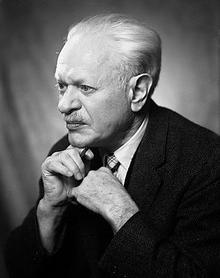
Persuasion or persuasion arts is an umbrella term for influence. Persuasion can influence a person's beliefs, attitudes, intentions, motivations, or behaviours.

Public speaking, also called oratory or oration, has traditionally meant speaking in person to a live audience. Today it includes speaking, formally or informally, to an audience through technology – live, pre-recorded, or at a distance.

Rhetoric is the art of persuasion, which along with grammar and logic, is one of the three ancient arts of discourse. Rhetoric aims to study the techniques writers or speakers utilize to inform, persuade, or motivate particular audiences in specific situations. Aristotle defines rhetoric as "the faculty of observing in any given case the available means of persuasion" and since mastery of the art was necessary for victory in a case at law, for passage of proposals in the assembly, or for fame as a speaker in civic ceremonies, he calls it "a combination of the science of logic and of the ethical branch of politics". Rhetoric typically provides heuristics for understanding, discovering, and developing arguments for particular situations, such as Aristotle's three persuasive audience appeals: logos, pathos, and ethos. The five canons of rhetoric or phases of developing a persuasive speech were first codified in classical Rome: invention, arrangement, style, memory, and delivery.
A sophist was a teacher in ancient Greece in the fifth and fourth centuries BC. Sophists specialized in one or more subject areas, such as philosophy, rhetoric, music, athletics, and mathematics. They taught arete – "virtue" or "excellence" – predominantly to young statesmen and nobility.
Gorgias was an ancient Greek sophist, pre-Socratic philosopher, and rhetorician who was a native of Leontinoi in Sicily. Along with Protagoras, he forms the first generation of Sophists. Several doxographers report that he was a pupil of Empedocles, although he would only have been a few years younger. W. K. C. Guthrie writes that "Like other Sophists, he was an itinerant that practiced in various cities and giving public exhibitions of his skill at the great pan-Hellenic centers of Olympia and Delphi, and charged fees for his instruction and performances. A special feature of his displays was to ask miscellaneous questions from the audience and give impromptu replies." He has been called "Gorgias the Nihilist" although the degree to which this epithet adequately describes his philosophy is controversial.
In rhetoric, anthimeria or antimeria, means using one part of speech as another, such as using a noun as a verb: "The little old lady turtled along the road." In linguistics, this is called conversion; when a noun becomes a verb, it is a denominal verb, when a verb becomes a noun, it is a deverbal noun.
Appeal to emotion or argumentum ad passiones is an informal fallacy characterized by the manipulation of the recipient's emotions in order to win an argument, especially in the absence of factual evidence. This kind of appeal to emotion is irrelevant to or distracting from the facts of the argument and encompasses several logical fallacies, including appeal to consequences, appeal to fear, appeal to flattery, appeal to pity, appeal to ridicule, appeal to spite, and wishful thinking.

Logos is a term used in Western philosophy, psychology and rhetoric; it connotes an appeal to rational discourse that relies on inductive and deductive reasoning. Aristotle first systemised the usage of the word, making it one of the three principles of rhetoric. This specific use identifies the word closely to the structure and content of text itself. This specific usage has then been developed through the history of western philosophy and rhetoric.

In a jury trial, a Chewbacca defense is a legal strategy in which a criminal defense lawyer tries to confuse the jury rather than refute the case of the prosecutor. It is an intentional distraction or obfuscation.

Kenneth Duva Burke was an American literary theorist, as well as poet, essayist, and novelist, who wrote on 20th-century philosophy, aesthetics, criticism, and rhetorical theory. As a literary theorist, Burke was best known for his analyses based on the nature of knowledge. Further, he was one of the first individuals to stray from more traditional rhetoric and view literature as "symbolic action."
Pathos appeals to the emotions and ideals of the audience and elicits feelings that already reside in them. Pathos is a term used most often in rhetoric, as well as in literature, film and other narrative art.
Gorgias is a Socratic dialogue written by Plato around 380 BC. The dialogue depicts a conversation between Socrates and a small group of sophists at a dinner gathering. Socrates debates with the sophist seeking the true definition of rhetoric, attempting to pinpoint the essence of rhetoric and unveil the flaws of the sophistic oratory popular in Athens at the time. The art of persuasion was widely considered necessary for political and legal advantage in classical Athens, and rhetoricians promoted themselves as teachers of this fundamental skill. Some, like Gorgias, were foreigners attracted to Athens because of its reputation for intellectual and cultural sophistication. Socrates suggests that he is one of the few Athenians to practice true politics (521d).
Inventio, one of the five canons of rhetoric, is the method used for the discovery of arguments in Western rhetoric and comes from the Latin word, meaning "invention" or "discovery". Inventio is the central, indispensable canon of rhetoric, and traditionally means a systematic search for arguments.
Aristotle's Rhetoric is an ancient Greek treatise on the art of persuasion, dating from the 4th century BCE. The English title varies: typically it is Rhetoric, the Art of Rhetoric, On Rhetoric, or a Treatise on Rhetoric.

The Education of a Christian Prince is a Renaissance "how-to" book for princes, by Desiderius Erasmus, which advises the reader on how to be a good Christian prince. The book was dedicated to Prince Charles, who later became Habsburg Emperor Charles V. Erasmus wrote the book in 1516, the same year that Thomas More finished his Utopia and three years after Machiavelli had written his advice book for rulers Il Principe. The Principe, however, was not published until 1532, 16 years later.

Deirdre Nansen McCloskey is the distinguished professor of economics, history, English, and communication at the University of Illinois at Chicago (UIC). She is also adjunct professor of philosophy and classics there, and for five years was a visiting professor of philosophy at Erasmus University, Rotterdam. Since October 2007 she has received six honorary doctorates. In 2013, she received the Julian L. Simon Memorial Award from the Competitive Enterprise Institute for her work examining factors in history that led to advancement in human achievement and prosperity. Her main research interests include the origins of the modern world, the misuse of statistical significance in economics and other sciences, and the study of capitalism, among many others.
Rhetoric of science is a body of scholarly literature exploring the notion that the practice of science is a rhetorical activity. It emerged after a number of similarly-oriented topics of research and discussion during the late 20th century, including the sociology of scientific knowledge, history of science, and philosophy of science, but it is practiced most typically by rhetoricians in academic departments of English, speech, and communication.
Rhetorical reason is the faculty of discovering the crux of the matter. It is a characteristic of rhetorical invention (inventio) and it precedes argumentation.
Rhetorical stance is the position of a speaker or writer in relation to audience, topic, and situational context. Rhetoric is the art of effective or persuasive speech. Stance is an individual's attitudes in emotional and intellectual matters, or a philosophical position in a logical argument. Therefore, a rhetorical stance is an effective argument in favor of a particular position in order to persuade others to agree.

The classical education movement or renewal advocates for a return to a traditional education based on the liberal arts, the canons of classical literature, the fine arts, and the history of civilization. It focuses on human formation and paideia with an early emphasis on music, gymnastics, recitation, imitation, and grammar. Multiple organizations support classical education in charter schools, in independent faith-based schools, and in home education. This movement has inspired several graduate programs and colleges as well as a new peer-reviewed journal, Principia: A Journal of Classical Education.









